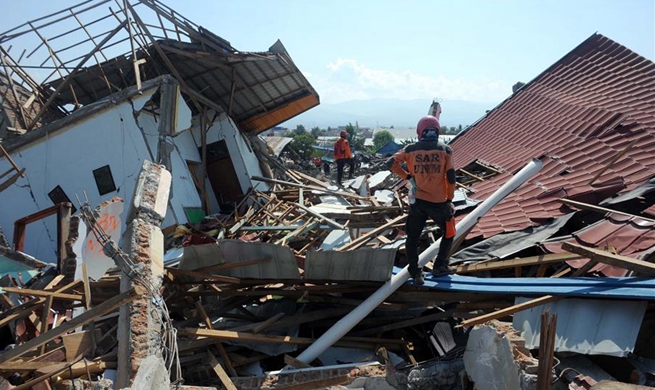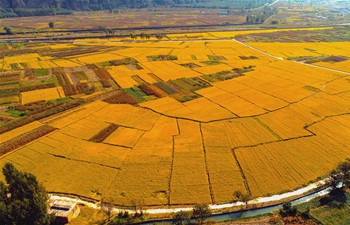HAVANA, Oct. 3 (Xinhua) -- Cuba's President Miguel Diaz-Canel on Wednesday said updating the Caribbean island nation's communications network is a top priority for his government.
According to a Cuban state television report, Diaz-Canel said providing greater access to the Internet and increasing Cuba's presence online are the focus of the telecom sector this year.
Specifically, creating e-government platforms is top on the agenda.
"One of the projects we're working on is creating e-government sites as a way to bring Cubans closer to ministries and other administrative bodies and by the end of this year all of them must be online," he said at the closing ceremony of the first national conference of IT developers and computer scientists.
He called on government departments to create websites that better provide information and facilitate interaction with the public.
"We must create a new technology culture to move forward with the process of connecting our country to innovative technological processes," said the Cuban president.
In his opinion, Cuba's young IT developers should lead in the efforts.
"Even though we're working to provide new technologies and greater Internet access for all the main beneficiaries, users of these tools will be the Cuban youth," he said.
Cuba is also developing an incipient e-commerce project by creating local platforms for buying food products at certain stores as well as advancing online banking, said the Cuban president.
Last week during his participation in the United Nations General Assembly held in New York, Diaz-Canel met with a group of U.S. tech companies at Google headquarters in order to promote cooperation in the telecom sector despite U.S. sanctions on the island.
According to official data, Cuba has made substantial progress in an array of new projects to expand Internet access, including the creation of more than 1,700 public connection areas, 755 of them with Wi-Fi technology.
In Cuba, over 5.9 million people have access to the Internet in different ways, and mobile service is expected to be available with 3G technology by the end of the year.
In February 2017, the Cuban government approved a comprehensive strategy for the expanded use of new technologies to serve as a guide line for developing Cuba's telecoms sector.
The project also seeks to expand connectivity in state institutions, universities and research centers.













